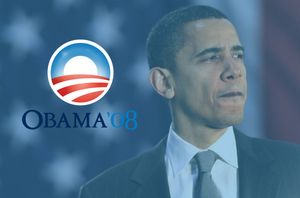For this post, let’s all remember the word of the day (which I chose a few minutes ago): anecdotal. Why? Because after a bit of ruminating, I’m about to speculate with anecdotal evidence. I don’t have stats. I don’t have data. I have only my personal experience and perceptions. This is me thinking out loud (in writing), which, I hope, is a perfectly acceptable thing to do on my own blog.
The topic, as mentioned in the title, relates to the recent US election. More specifically, it deals with my election experience on social media. My hypothesis: Hillary Clinton (and her campaign staff) had no clue how to effectively use social media.
First some disclosures. I’m not attacking Hillary from any position other than an intellectually curious and frustrated one. I fall squarely on the progressive side of the aisle, and it’s imperative that we analyze a loss in order to improve future results.
I supported Bernie Sanders throughout the Democratic Party primaries. Why? Because he clearly attacked issues that mattered to enormous swaths of the working public. By working public, I’m referring to people who live off a paycheck instead of investment income and capital gains. That’s pretty much everyone from the upper middle class to the poverty level. Something like 95% of us.
Every day on one of his social media channels, Bernie highlighted an issue facing the working public. He frequently offered solutions, too. Sure, the solutions were high level and rather populist in sentiment, but he had more detailed policy positions to back them up. Remember, this post is about the effective use of social media and marketing, not the validity of policy positions. Trump dominated social media without a shred of intelligent or consistent positions.
From FB to Twitter to Instagram, the Sanders campaign maintained a systematic bombardment of our electronic devices. Bernie (or, more accurately, his marketing team) identified clear problems, offered clear solutions, and never stopped. There’s a reason so many people were drawn to him. He stood for something. He offered an easily defined platform, a clearly established narrative about the type of problems he wanted to attack as President. This is vision. This is what a leader does. Here’s an example. Notice the quickly identifiable problem and the desire to find a solution.
We don’t know if Bernie would have defeated Trump. I think he had a better chance than Hillary, an easy target carrying too much baggage. I made this argument a year ago at dinner with a friend. To be fair, most of Hillary’s baggage was manufactured over two decades by Republican smear campaigns, smear investigations, and propaganda. Nevertheless, she carried with her a history of scandal in the distracted minds of the public, and that’s tough to shake.
Bernie, of course, carried the burden of the Socialist moniker in a Capitalist society. Worse, he faced the “commie” attack from people who often can’t define the word. Such an attack might have been used successfully against him. I don’t know. I imagine he could’ve won a significant portion of the blue collar vote ultimately won by Trump without losing much of the traditional Democratic vote, so I think his chances were good.
In any case, once Clinton won the primary, I supported her. She was far more closely aligned with my positions than any Republican candidate in the field. Also, she wasn’t Donald Trump. That being said, I had reservations, not because of her qualifications but because of her ability to inspire. The comparison I’ve made for a while is related to business.
The position of President is like that of a company’s CEO (note: I’m not arguing that the US government should be run like a corporation, only that the chief executive role is similar). The President steers the strategic vision of the country. The President inspires and guides and pushes us toward an ideal. Hillary is more like a COO. She’d work her ass off and be essential to getting things done. She’d make necessary concessions to facilitate daily small steps toward progress. But she’s too pragmatic and detail oriented to inspire on a larger scale. A good COO is critical to a big business. The role simply requires a different skillset than the one needed for a CEO. Hillary managed to inspire a lot of people as a groundbreaking female candidate, which is no insignificant achievement, but it was this instead of her positions that built her movement, and positions and vision are what will convert undecided voters.
Regardless of all that, I backed her 100%, because I knew she would get things done as President, even if she took a less idealistic path to my desired progress. I followed her on Facebook. On Twitter. On Instagram. Because of my previously stated political positions, I fall into the progressive blue Facebook feed, and I see pretty much everything there is to see if it leans left.
Hillary was basically absent from my feeds. Sure, I saw sponsored ads every day, but they offered nothing of value. Occasionally I saw topical posts about her position on a few current events, from the Dakota Access Pipeline to police shootings to Black Lives Matter protests. I saw plenty of posts attacking the awfulness that is Donald Trump. But I saw very little in terms of strong positions or solutions. There was a lot of this:
Now, I’m not saying she didn’t make policy posts. She must have, right? But they rarely showed up in my feed. Why? Because most of what showed up in my feed failed to warrant an interaction, and without interaction, her posts will appear in my feed less often. This is the social media echo chamber trap we’ve heard so much about recently, and Hillary failed to get me into her echo chamber. Why?
I suspect her and the campaign simply didn’t understand social media. It felt as though they were using Obama’s social media strategy from 2008 and 2012. The internet landscape has changed. Back then, you needed only a presence. You could build a brand through simple saturation. That’s no longer enough to build a movement, because algorithmic feeds will hide you from anyone who doesn’t engage. Now you need a message. You must instigate emotion. You need to manipulate viewers into liking or commenting or retweeting.
Bernie got it. Trump got it. Hillary did not get it.
All the recent articles that focus on “fake” news or manipulative headlines tell us what we need to know about Hillary’s failures on social media. She didn’t take risks. She didn’t state exciting or agreeable or even disagreeable policy positions. She simply asked us to be with her without providing a clear vision for her presidency. She gave our hearts and minds no reason to engage. It’s what you say and how you say it that creates engagement.
I see almost nothing lately from @HillaryClinton campaign re: plan and vision. Only Trump attacks. That's not motivational or inspiring. :(
— Kevin Koperski (@kevinkoperski) September 7, 2016
Underwhelmed right now w/ the @HillaryClinton campaign. I hope they're busy building a massive ground game or something equally stealthy.
— Kevin Koperski (@kevinkoperski) September 7, 2016
I tweeted two months ago that I wasn’t seeing anything of substance from Hillary’s campaign. I hoped they knew what they were doing. I hoped they were building an enormous ground game in every state in order to wipe the electoral map clean of Trump. Turns out they were building no such thing.
Social media may not have been the primary reason Hillary lost, but she did nothing to help herself. From what I saw, it was a tragically missed opportunity. And it strengthened the perception that she was too pragmatic and too willing to cede a position in order to satisfy ambition. Doesn’t matter if those things are true. Perception is everything. And she failed to influence perception on social media.
Of course, this didn’t help either:
So #DNC colludes against @BernieSanders and @HillaryClinton picks safe boring VP. Not the way to bring out your base against Trump. Ugh.
— Kevin Koperski (@kevinkoperski) July 23, 2016
So what’s next, other than four years of Trump disgracing America? Well, first we need a forward thinking progressive visionary. If the Democrats want to win, they can’t simply count on unhappiness with Trump to help them do so (we learned this lesson with George W Bush). They need a strong candidate who takes aggressive positions and is not intimidated by the Republican Bully Machine.
In addition, they need to regain their technology lead. They must update their internet game plan for today’s connected world. Talk to Obama, who continues to show everyone how it’s done. Reddit AMAs. A snapchat account. Don’t just throw money at technology, because that can be a black hole. Understand the technology. Understand how people use it. Meet them in their own virtual town halls and speak to them directly, actively instead of passively.
More than anything, don’t just be an alternative. Don’t assume you’ll win because the other side is so bad. State clearly and loudly what you represent. Don’t be ashamed of it. Don’t be afraid of it. Don’t worry about whether or not the other side will work with you (because we know they won’t). Take a position. Create engagement. Create involvement. Force people to take a vested interest in your success instead of coasting along in your wake. This will have a cascading effect on social media, and the progressive movement will grow exponentially along with it.
Hillary lost social media. She didn’t connect with people where it should have been easiest. We can’t let it happen again.
Also published on Medium.





